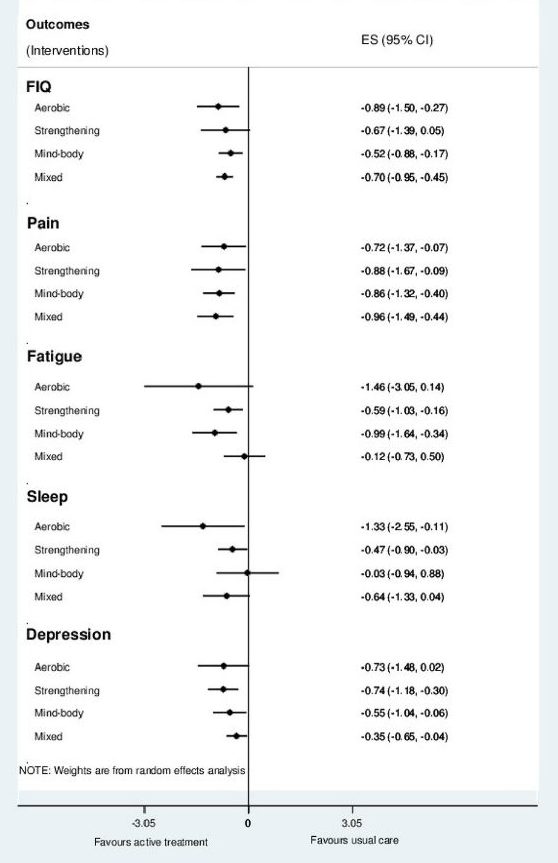
April 14, 2020, by aeyavb
Identifying key elements of non-pharmacological treatment package for fibromyalgia: Evidence synthesis and Delphi exercise
Fibromyalgia (FM) is a long-term condition that causes pain all over the body and currently has no cure. However, there are treatments which can help relieve some of the symptoms and make the condition easier to live with. Burak Kundakci, a PhD student at the University of Nottingham, conducted research into a package of care for patients with fibromyalgia by selecting the most applicable non-pharmacological treatments, and collating them together.

Non-pharmacological interventions are recommended as first-line treatment for fibromyalgia (FM). This study assessed the efficiency of non-pharmacological interventions on FM and the patient’s quality of life in relation to:
- Pain
- Fatigue
- Sleep
- Depression

Exercise types versus usual care: FIQ, pain, fatigue, sleep and depression.
To begin, randomised controlled trials (RCTs) were used to compare any non-pharmacological interventions with usual care, no treatment, waiting list or placebo in patients with FM aged >16 years, to calculate the overall effect sizes. The review identified 16,251 studies, with 89% of patients in the included studies meeting American College of Rheumatology’s (ACR) 1990, 2010 or 2016 criteria.
Results:
- 109 studies compared active treatment to usual care, waiting list or no treatment.
- 39 compared treatment with placebo or sham treatment.
- In total, 20 non-pharmacological interventions were evaluated.
Exercise was the only intervention that created significant improvements for all outcomes, particularly to relieve pain and depression. Mind, body, and strengthening exercises were effective at improving fatigue, while aerobic and strengthening exercises helped improve sleep. Furthermore, psychological treatments such as cognitive behavioural therapy (CBT) and mindfulness were significantly more effective than usual care in impact upon FM as recorded in the Fibromyalgia Impact Questionnaire (FIQ), pain and depression. However, they showed no significant difference for fatigue and sleep.
A delphi exercise (consensus building) among healthcare professionals assessed the most beneficial and applicable interventions. Burak presented his findings at the Showcase of UK Research in Musculoskeletal Epidemiology and the EULAR Congress 2019. He achieved second place in Sue Watson’s Postgraduate Presentation Prize for an oral presentation based on this research.
Amelia Bell
No comments yet, fill out a comment to be the first

Leave a Reply